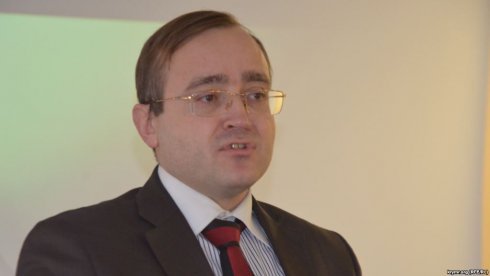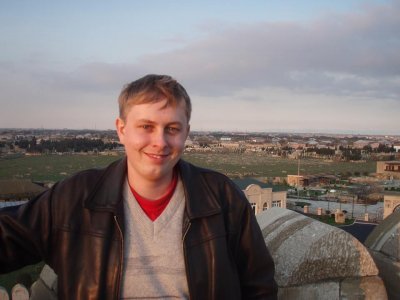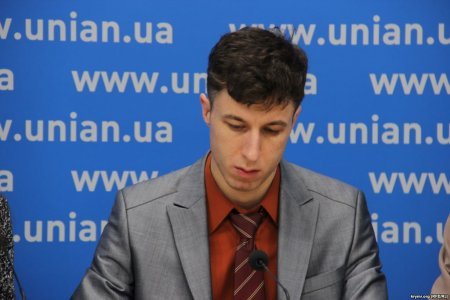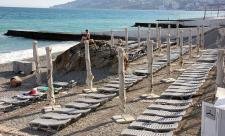The problem of the current state of the Ukrainians on the territory of occupied Crimea was a matter of fierce debate during the round table “The impact of temporary occupation on the Ukrainians of Crimea: assimilation pressure and forced migration” that was held in Kyiv on June 22, 2015.
Different expert opinions can be combined in three key approaches to define the key part of the problem and find ways to solve it – ethnic, national and political-legal.
Ukrainians are the ethnic minority that the occupation authorities try to assimilate or destroy.
 Andriy Ivanets, coordinator of the organization “Taurida Humanitarian Platform”, believes that Ukrainians in Crimea are discriminated solely on the ethnic grounds. “Occupation authorities destroyed the system of Ukrainian language education in Ukrainian schools – none of these schools is fully Ukrainian now; the number of Ukrainian classes was reduced; Ukrainian-language newspapers were liquidated in Crimea; those Ukrainian newspapers that were published by the community completely disappeared; there is a ban on the use of Ukrainian symbols,” the expert says.
Andriy Ivanets, coordinator of the organization “Taurida Humanitarian Platform”, believes that Ukrainians in Crimea are discriminated solely on the ethnic grounds. “Occupation authorities destroyed the system of Ukrainian language education in Ukrainian schools – none of these schools is fully Ukrainian now; the number of Ukrainian classes was reduced; Ukrainian-language newspapers were liquidated in Crimea; those Ukrainian newspapers that were published by the community completely disappeared; there is a ban on the use of Ukrainian symbols,” the expert says.
But the main problem is a significant decrease in the Ukrainian population in Crimea during the so-called census in 2014 conducted by the occupants. According to this “census”, the Ukrainian population decreased by 200 thousand persons compared to the results of the Ukrainian census of 2001 being only 344 thousand. In other words, in Ivanets’s opinion, occupation authorities “conduct a systemic policy aimed at changing the ethnic population structure” on the peninsula and try to achieve the assimilation of the Ukrainians, forcing them “either to choose another identity or not to show their social and political interests freely”.
The head of the “Coordination council of non-governmental organizations of IDPs from Crimea” Sergiy Kovalsky said that the occupants tried to destroy everything Ukrainian in Crimea. “As for the Ukrainians, the position was very simple: to destroy everything that is Ukrainian in Crimea. Just everything. In other words, in fact, it is the destruction of the Ukrainian identity at all,” he says.
Conscious choice for Ukrainian
 Another position was expressed by Maksym Mayorov, the member of the organization “Taurida Humanitarian Platform”, who thinks that is it possible to determine how many Ukrainians live in Crimea neither according to the occupants’ census, nor according to the census of 2001.
Another position was expressed by Maksym Mayorov, the member of the organization “Taurida Humanitarian Platform”, who thinks that is it possible to determine how many Ukrainians live in Crimea neither according to the occupants’ census, nor according to the census of 2001.
“Let’s take the census of 2001. What did it show? It showed the number of Ukrainians. But it was carried out in those circumstances, when the transformation process of a Soviet man into a modern man didn’t complete. People keeping the pro-Russian sentiments but having the Ukrainian surname could be called the Ukrainians. Also many of the Ukrainian patriots were considered as the Russians, because they had the Russian surname. So it doesn’t determine the ethnic group that we can call the ethnic Ukrainians,” Mayorov says.
In the public man’s view, it is impossible to consider the Ukrainians as the ethnic group, because none of the criteria is significant. If we consider the language, the Ukrainians in Crimea are bilingual. Ukrainian language is the native language for them, but they have to communicate in Russian in their everyday environment. “But, on the other hand, those who are not patriots of Ukraine also are bilingual. They also know the language. Now they may hide and feel ashamed for that,” Mayorov says. The same situation is with the Church, because solely Ukrainian churches (Ukrainian Orthodox Church of the Kyivan Patriarchate, Ukrainian Apostolic Church and Ukrainian Greek Catholic Church) don’t cover all people who “feel themselves the Ukrainians”.
That is why we should put a focus not on the ethnic, but national identification of the Ukrainians in Crimea. “If there is a certain number of those people who consider themselves the Russians and the Ukrainians, we have to work inside this number. It is because many of those who consider themselves the Russians and even are the ethnic Russians, potentially they can become the Ukrainians in one sense or another,” Mayorov says. He also adds that we shouldn’t fear that “the civic approach will devalue the ethnic component” and need to make efforts, “so that people of different ethnic origin make a conscious choice for the Ukrainian in the political and civic sense.”
Difficulties regarding distinguishing the ethnic and political
 The lawyers and government officials focused on practical determination of the Ukrainians’ state on the peninsula as opposed to theoretical arguments. The head of the division for discrimination of the Ombudsman’s Secretariat Sergiy Ponomarev said that it was very difficult for their institution to work with the distinction between violations of ethnic and political rights of the Ukrainians in Crimea.
The lawyers and government officials focused on practical determination of the Ukrainians’ state on the peninsula as opposed to theoretical arguments. The head of the division for discrimination of the Ombudsman’s Secretariat Sergiy Ponomarev said that it was very difficult for their institution to work with the distinction between violations of ethnic and political rights of the Ukrainians in Crimea.
“The situation that was created against the Ukrainians in Crimea – it is very difficult to distinguish where there is the restriction of rights on the ethnic grounds and where – because of political views, that is the pro-Ukrainian position. When we talk about the destruction of cultural, educational and informational infrastructure, of course, we talk about the restriction of rights of the Ukrainians as the ethnic minority. When we talk about numerous cases of limitations of rights to exercise the freedom of peaceful assembly, restrictions of free speech, kidnapping, tortures, then it is already a political matter,” Ponomarev thinks.
Despite the different approaches and varied views on solving the problem of de-occupation and reintegration of Crimea, all participants were unanimous that the systemic consolidated work of the government, NGOs and the international community in all directions is required in order to return the peninsula to the jurisdiction of Ukraine.












